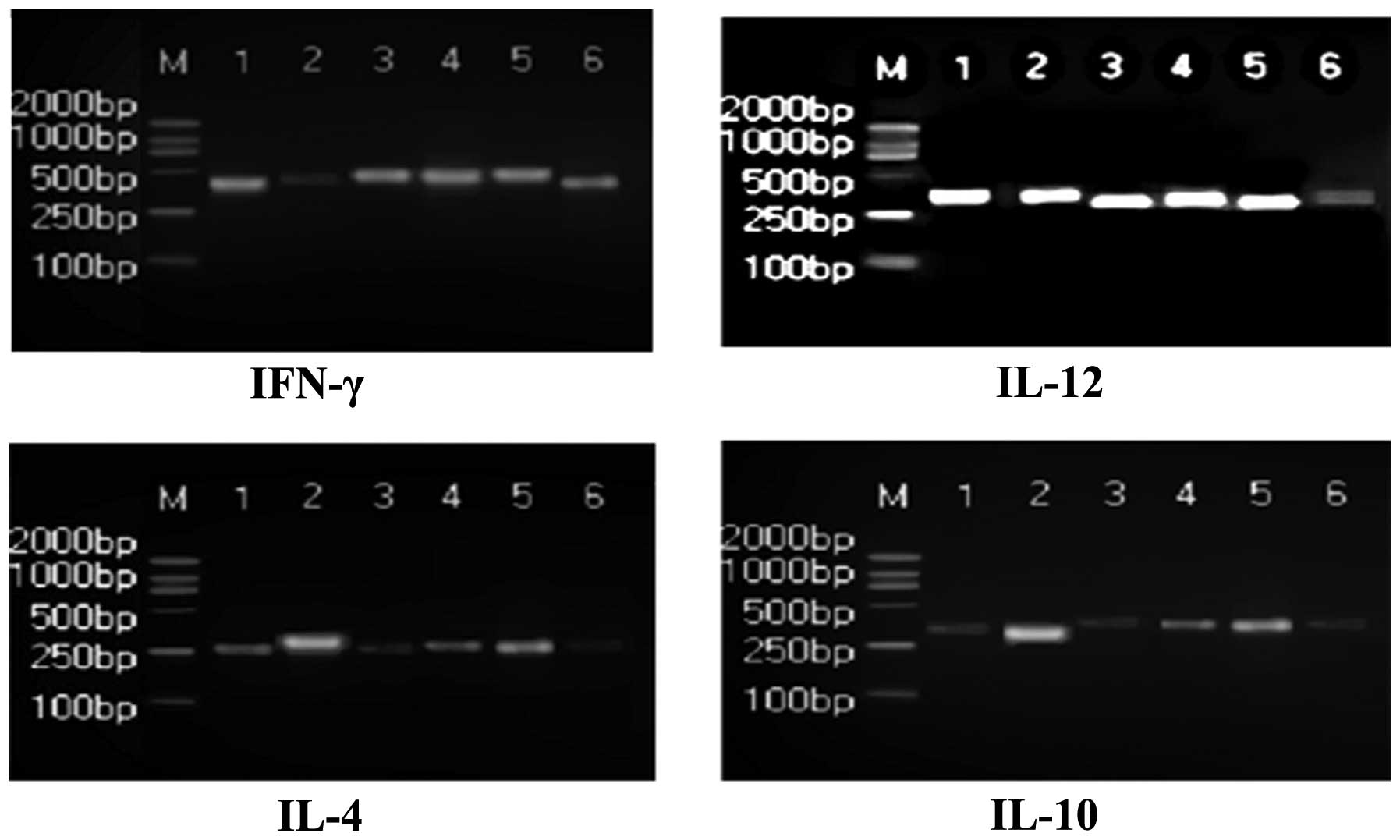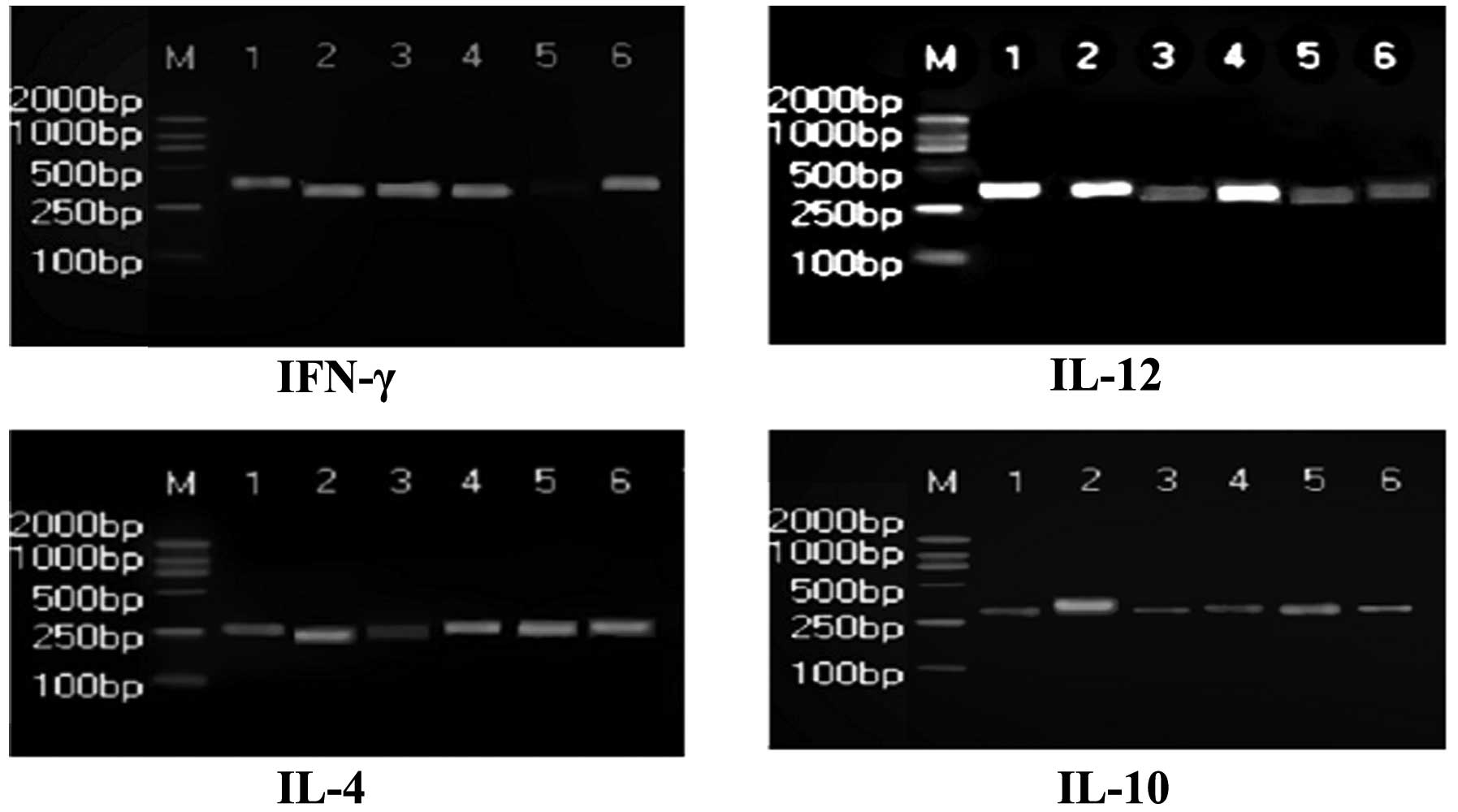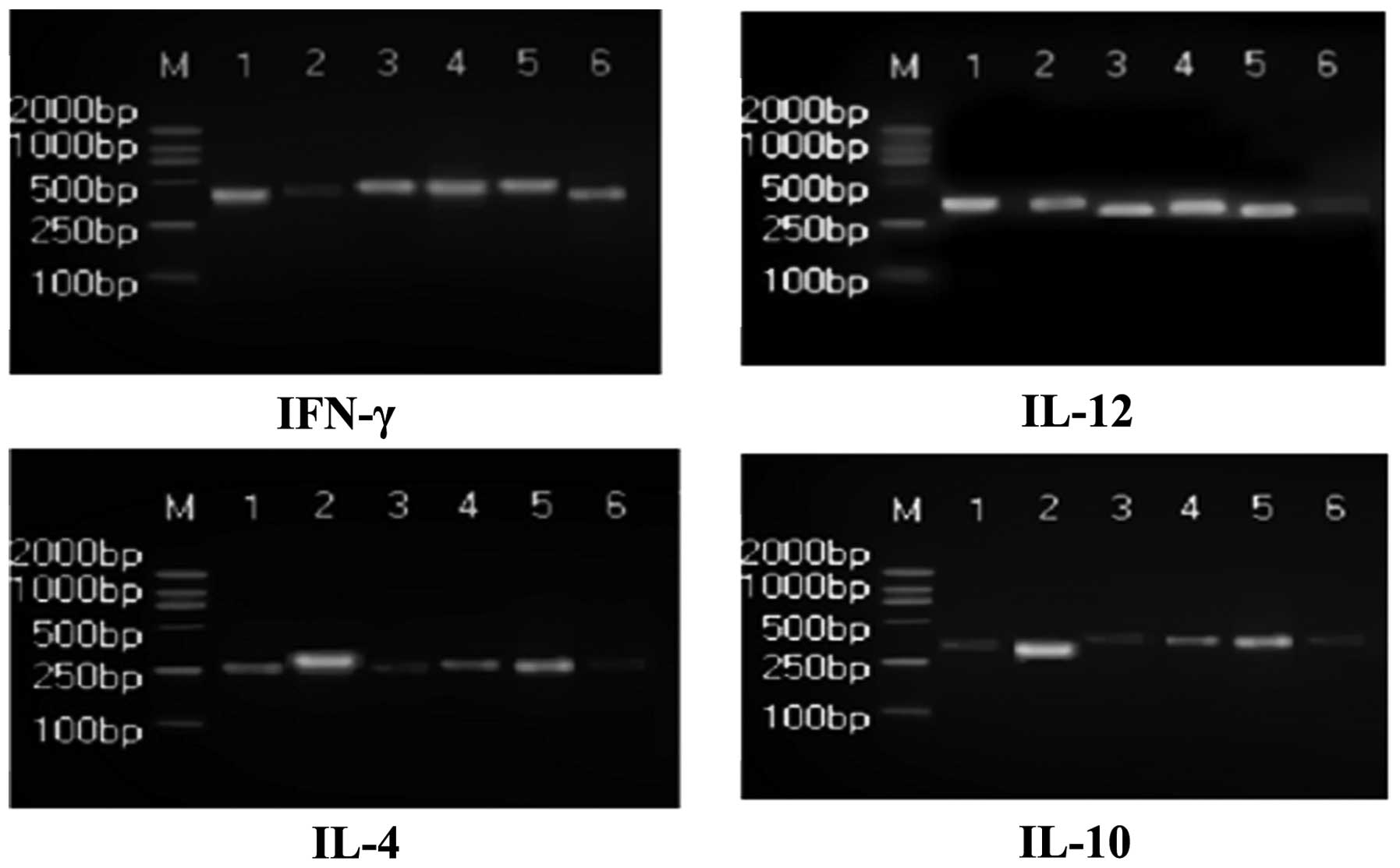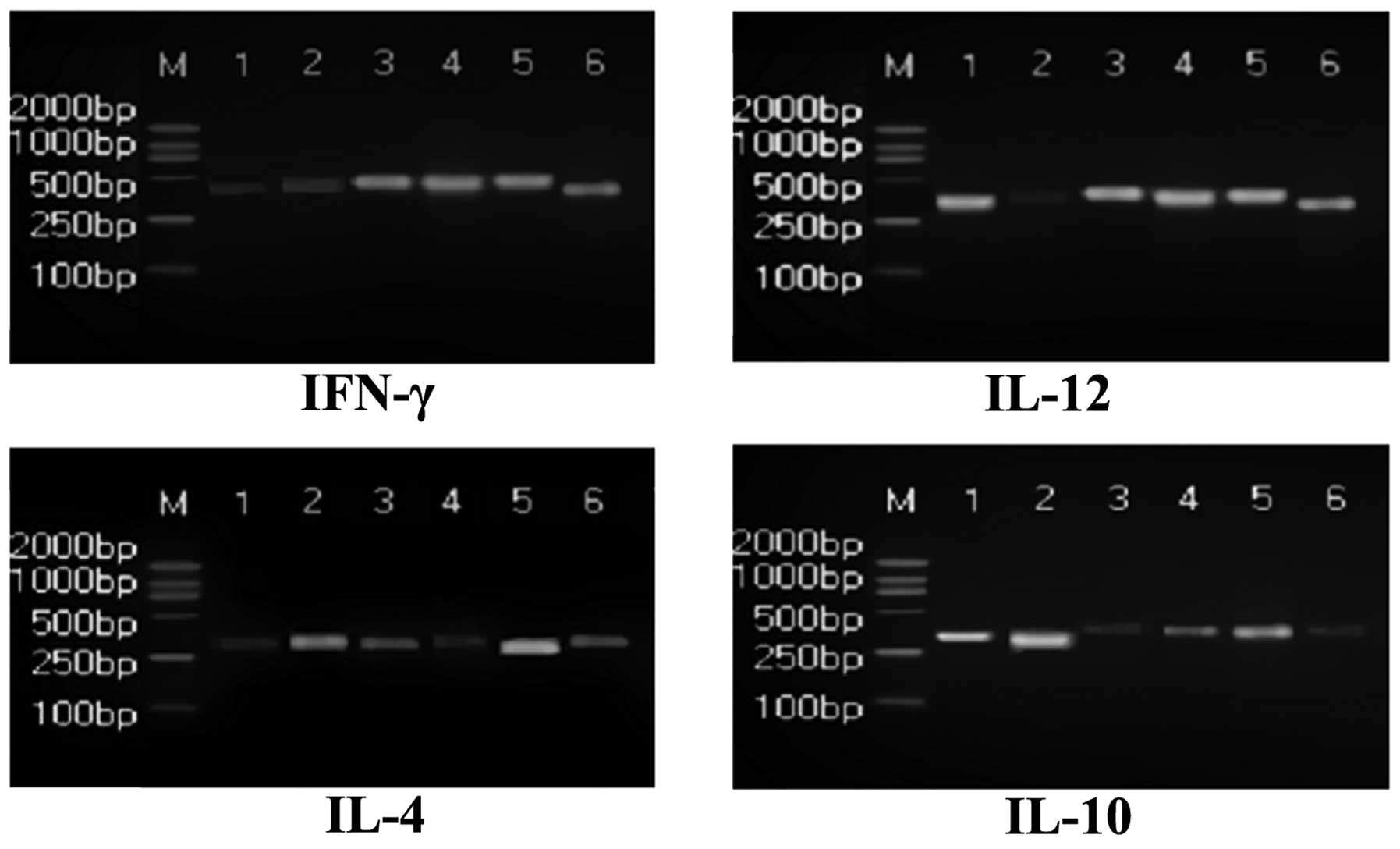|
1
|
Telenti A and Iseman M: Drug-resistant
tuberculosis: what do we do now? Drugs. 59:171–179. 2000.
View Article : Google Scholar : PubMed/NCBI
|
|
2
|
Du Toit LC, Pillay V and Danckwerts MP:
Tuberculosis chemotherapy: current drug delivery approaches. Respir
Res. 7:1182006.PubMed/NCBI
|
|
3
|
Zhang ZL, Wu XJ, Wang L and Zhang HX:
Study on immunocompetence of active constituent of Radix Ranunculi
Ternati. Zhong Hua Zhong Yi Yao Xue Hui She. 22:120–122. 2007.(In
Chinese).
|
|
4
|
Fu XR, Li JC and Zhang MZ: Advances in
modern research on prunella spike. Zhong Yi Yan Jiu Bian Ji Bu.
18:60–62. 2005.(In Chinese).
|
|
5
|
Ji RL, Xia SH and Li F: Oxymatrine
inhibits MMP-2 expression and reduces cell invasion in human
pancreatic carcinoma cell line SW1990. Shi Jie Hua Ren Xiao Hua Za
Zhi Bian Ji Bu. 19:19–24. 2011.(In Chinese).
|
|
6
|
Wu HD and Wang L: Research of
antituberculotic. Medical Review. 13:475–478. 2007.
|
|
7
|
Lu J, Ye S, Deng Y, et al: Effects of four
extracts of Chinese herbal medicines on cellular immunity in rats
induced by multiple drugs resistant bacillus tuberculosis
among pneumoconiosis patients complicated with tuberculosis. Zhong
Hua Wei Sheng Wu Xue He Mian Yi Xue Za Zhi Bian Ji Bu. 31:893–897.
2011.(In Chinese).
|
|
8
|
Bai J, Sun HF and Chen XF: Studies on the
anti-mycobacterium tuberculosis activity of 4 Chinese
medicinal herbs. Shi Zhen Guo Yi Guo Yao Bian Ji Bu. 18:77–78.
2007.
|
|
9
|
Liu MX, Sun FJ, Wang CX, et al: Effects of
the extract of Coptidis Decoction for detoxification in MDR model
rats on cell apoptosis and correlative study. Zhong Yao Cai Bian Ji
Bu. 32:1270–1272. 2009.(In Chinese).
|
|
10
|
Li JG, Gao AL, Liu XH and Li NN: The
effect of crewels pills on protection and pathological changes
degree of internal organs for mouse suffering MDR-TB. He Nan Zhong
Yi Xue Yuan Xue Bao Bian Ji Bu. 23:28–29. 2008.(In Chinese).
|
|
11
|
Guo XM, Hong YH and Zhou ZL: Advances in
studies on chemical constituents from plants of Ranunculus.
Zhong Cao Yao Bian Ji Bu. 32:748–750. 2001.(In Chinese).
|
|
12
|
Wang AW, Wang M, Yuan JR, et al: The study
on antitumor effects in vitro of different extracts in Radix
Ranunculi Ternati. Tian Ran Chan Wu Yan Jiu Yu Kai Fa Bian Ji Bu.
16:529–531. 2004.(In Chinese).
|
|
13
|
Liu XL, Zhang Y and Liu XL:
Anti-coxsackievirus B3 effects of Sophora flavescens
alkaloids in vitro. Shen Yang Yao Ke Da Xue Xue Bao Bian Ji Bu.
23:724–730. 2006.(In Chinese).
|
|
14
|
Liu D, Jiang YP and Cheng ZL: Sheltering
effect on acute and chronic liver injury of mice due to drug
combination of glycyrrhizin with matrine to carbon tetrachloride.
30:581–582. 2007.
|
|
15
|
Feng L, Jia XB, Cheng Y and Li X: Advances
in chemical constituents of Prunella vulgaris and antitumor
mechanisms. Zhong Hua Zhong Yi Yao Xue Hui She. 23:428–434.
2008.(In Chinese).
|
|
16
|
Zhang MZ and Wang XQ: Effects of extract
from Prunella vulgaris combined with chemotherapeutic agents
on proliferation of lymphoma cells. Zhong Liu Bian Ji Bu.
299:961–964. 2009.(In Chinese).
|
|
17
|
Fang X, Chang RC, Yuen WH, et al: Immune
modulatory effects of Prunella vulgaris L. Int J Mol Med.
15:491–495. 2005.PubMed/NCBI
|
|
18
|
Yang K, Wang YS, Wang LP, et al: Brief
review and clinical analysis of pharmacological action of
Stellera chamaejasme L. Yi Xue Xin Xi Bian Ji Bu.
23:2496–2498. 2010.(In Chinese).
|
|
19
|
Wu SZ and Song JF: Mycobacterium
tuberculosis pathogenesis and immunity. Zhong Hua Jie He He Hu
Xi Za Zhi Bian Ji Bu. 26:101–103. 2003.(In Chinese).
|
|
20
|
Cole ST, Brosch R, Parkhill J, et al:
Deciphering the biology of Mycobacterium tuberculosis from
the complete genome sequence. Nature. 393:537–544. 1998.
|
|
21
|
Cooper AM, Dalton DK, Stewart TA, et al:
Disseminated tuberculosis in interferon-γ gene-disrupted mice. J
Exp Med. 178:2243–2247. 1993.
|
|
22
|
Zhan L, Dai HC, Yang ZP, et al: The study
of expression of SHSP and GLS in peripheral blood lymphocytes of
drug resistant tuberculosis patients with ternatolide. Zhong Guo
Zhong Yao Za Zhi She. 27:677–679. 2002.(In Chinese).
|


















